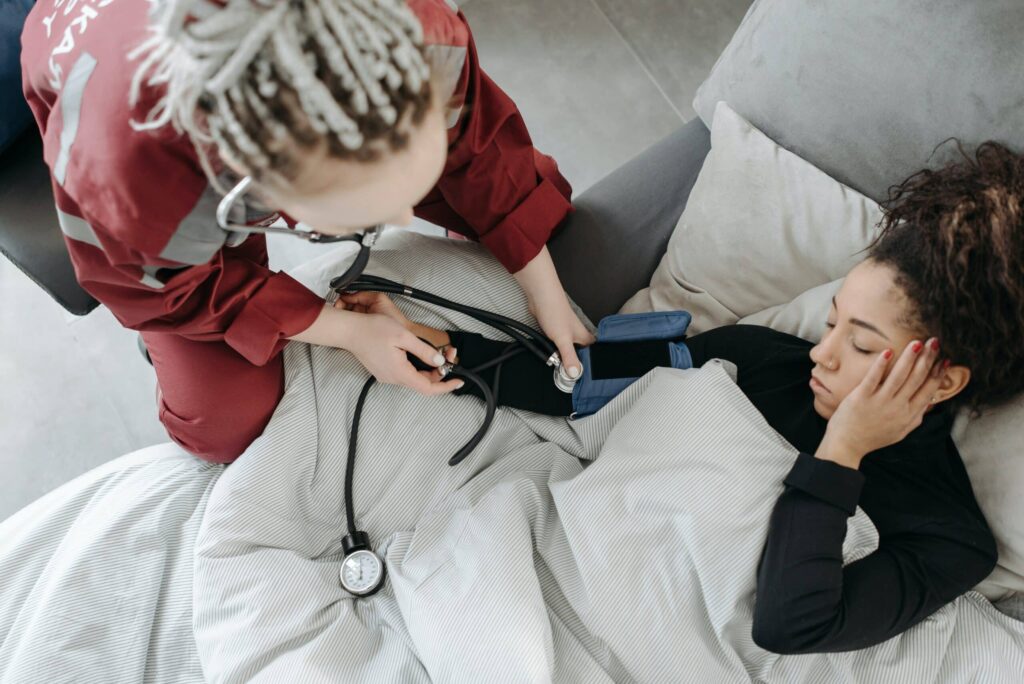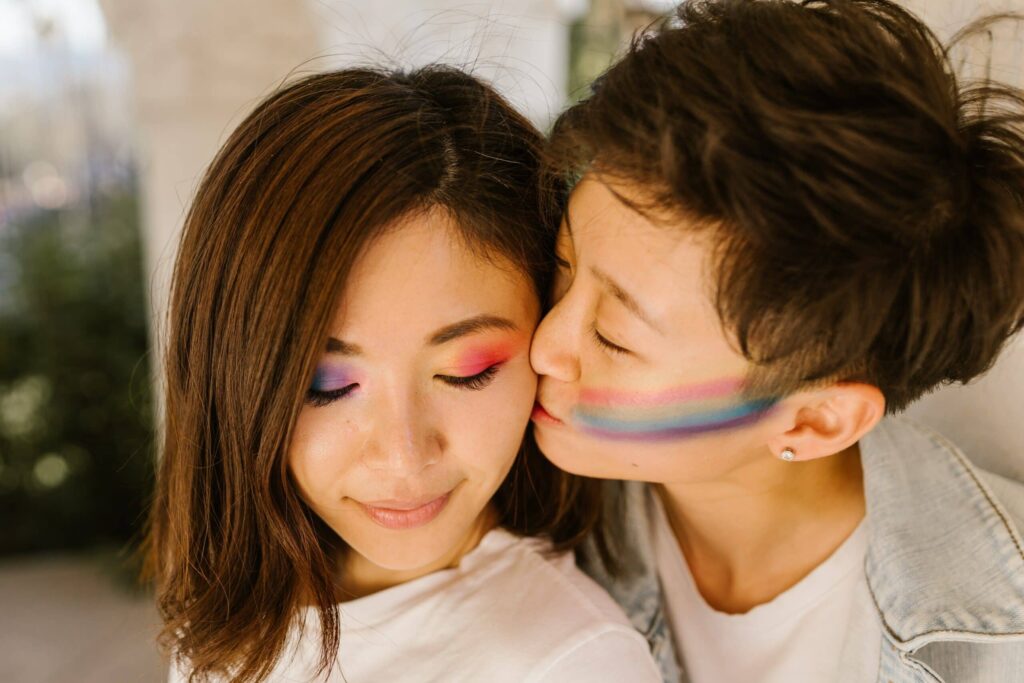As we’re nearing halfway through Women’s History Month, let’s address some ways women can advocate for themselves in a society that often does not. Women face many struggles when it comes to receiving adequate healthcare, and we often aren’t taught how to care for ourselves in schools. Having the tools to advocate for your physical health as a woman, especially as a queer woman and/or woman of color, is a great skill set to have (and it can even be an act of rebellion).
From knowing your rights to healthcare as a queer woman to exploring queer healthcare resources, HER is here to empower you to take control over your physical health. Knowledge is power, so keep reading to learn how to take your power back through this one of many forms.
Download HER app
Importance of physical health
It goes without saying that taking care of one’s physical health is important for everyone. In order to be successful in other aspects of our lives, we first need to prioritize our personal well-being. Taking care of your health doesn’t necessarily mean just exercising or watching your diet. It can also look like:
- Nourishing your body with healthy food.
- Maintaining proper hygiene.
- Prioritizing daily movement like stretching, yoga, and/or walking.
- Getting enough sleep and resting when needed.
- Forming healthy habits.
- Having a reliable, trustworthy healthcare practitioner.
- Getting regular check-ups.
- Seeing your Ob/Gyn.
- Managing your stress levels.
- Practicing self care.
Despite physical health being so important, women often face struggles when it comes to healthcare providers listening to their needs. There is also a severe lack of education in school systems for young women to learn about their physical health. Particularly with menstrual health, young people with uteri often don’t get the education they deserve. It’s important for all women to learn how to take charge of their physical health in a society that falls short of supporting them.
Female Discrimination in Healthcare
As a woman and/or queen person, advocating for your physical health can also be an act of rebellion in a society where it’s not always prioritized. According to the Commonwealth Fund, women face more struggles than men when it comes to receiving healthcare in the United States. Women are more likely to face poverty, yet are also more likely to need medical care, leading to over half of women struggling with medical bills.
Although women are more likely to require healthcare, they are also likely to not receive adequate care for their needs, particularly when it comes to reproductive care. Women of color face even greater adversaries when it comes to receiving proper health care, with Black women having the highest rates of healthcare struggles. For example, Black women are 2-3 times more likely to die from a pregnancy-related cause than white women.
Queer women also face struggles in healthcare– often due to discrimination. Queer women of color are even more likely to experience medical discrimination. According to a Center for American Progress study, 18.4 percent of LGBTQ+ people reported avoiding doctor’s offices to avoid discrimination, with 3 in 10 transgender individuals reporting the same. Continue reading to learn how to advocate for yourself as a queer woman seeking medical care.
How to advocate for yourself in healthcare
Keeping the discrimination women face in mind, it’s important to learn how to advocate for ourselves. One way we can do this is by becoming educated on our rights. Many states now have a variety of anti-discrimination laws that protect women, people of color, and queer folks from discrimination. A recent amendment to the Affordable Care Act has made it illegal for health care providers and insurance companies to discriminate against “race, color, national origin, sex, age or disability in certain health programs and activities” (NPR). This means that in many states you can now take legal action if you’ve faced discrimination in the medical field.
Another way to ensure adequate care as a queer woman is to seek out known queer-friendly healthcare providers. Although queer women and women of color face greater discrimination in the medical world, there are healthcare providers dedicated to shifting that and who want to ensure care is provided for all. We’ve listed resources below to find adequate medical providers for LGBTQ+ women and women of color– people who will also advocate for you.
Resources for LGBTQ+ Women
Learn more with HER
HER is the dating app for connecting with LGBTQ+ women and nonbinary folks in your area. Download HER today to find your supportive, uplifting queer community.
Download HER app







